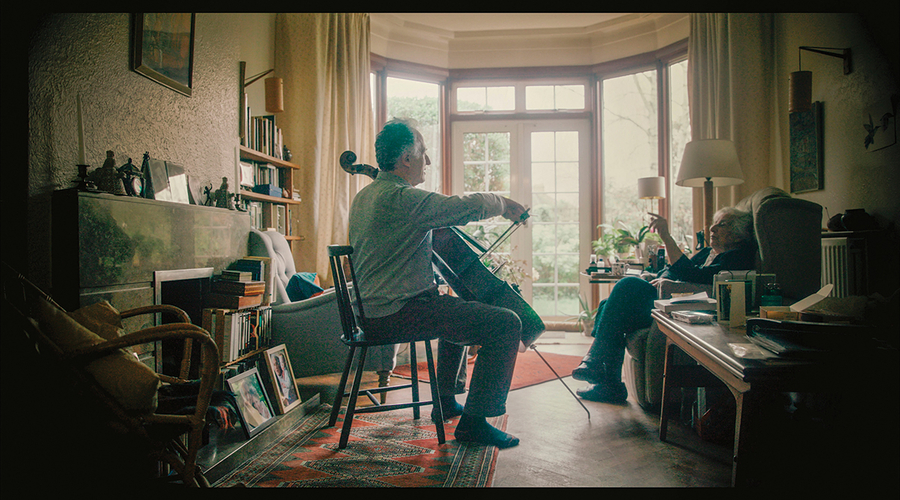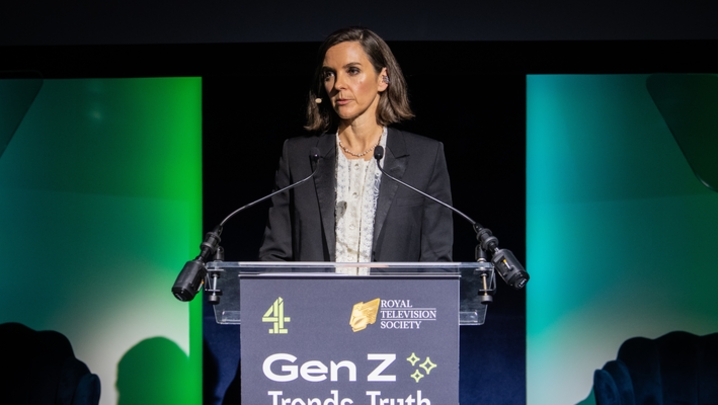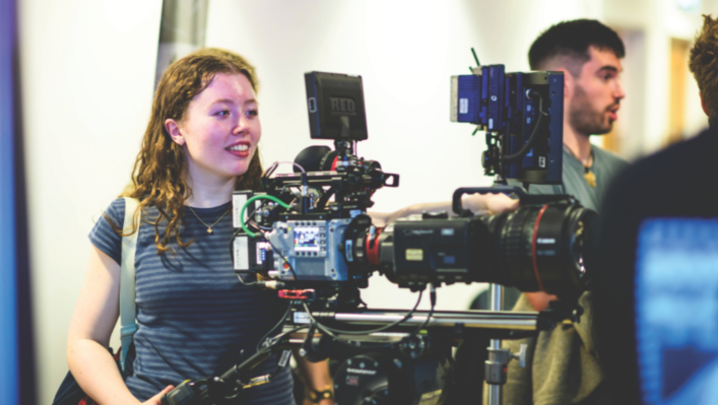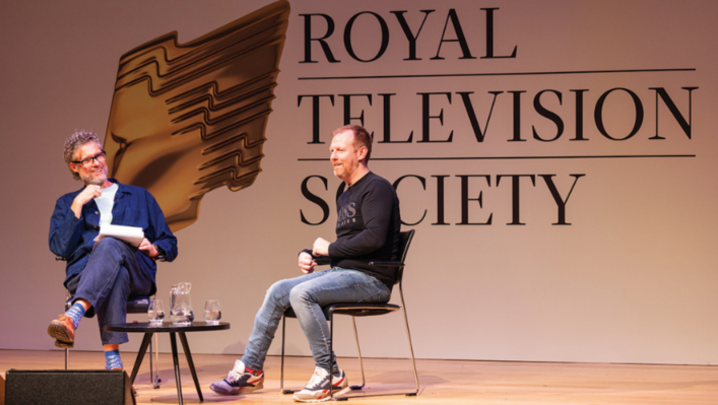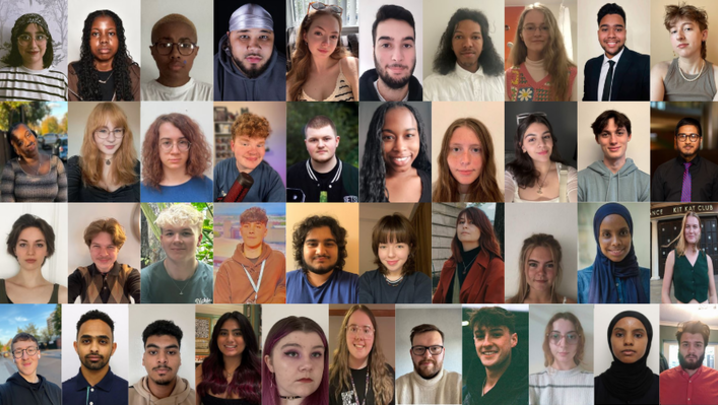Cellist Anita Lasker-Wallfisch, who survived the death factory of Auschwitz, is the focus of a remarkable new documentary. Matthew Bell reports
Auschwitz was a death factory where more than a million people, mostly Jewish, were murdered. As one survivor says of the Nazis’ evil efficiency in a new feature-length documentary to mark the 80th anniversary of the camp’s liberation on 27 January 1945: “Satan would have been envious.”
Yet, incredibly, amid the terror there was music. It was performed and even composed in the camp, and for a fortunate few this enabled their survival. Music was a lifeline and a way of resisting.
The Last Musician of Auschwitz, made by Two Rivers Media for BBC Arts and co-funder Access, is a remarkable film. It finds something new to say about Auschwitz and does it in a moving, life-affirming way, without ever sparing us the horror of the Holocaust.
Two of the key figures involved in the project – Suzy Klein, Head of BBC Arts and Classical Music TV (who commissioned the programme alongside the BBC’s Alistair Pegg), and producer Debbie Lee – had worked together on the 2017 BBC Four series Tunes for Tyrants: Music and Power, which explored the manipulation of music in the Second World War. Crucially, cellist Anita Lasker-Wallfisch had appeared in one episode, explaining how her musical talent saw her drafted into the Women’s Orchestra of Auschwitz, saving her from the gas chambers. Thanks to her relationship with Klein, and at the urging of her grandson, cellist and singer Simon Wallfisch, Lasker-Wallfisch agreed to be in The Last Musician of Auschwitz.
Fittingly, as the last musician alive to have played in the Auschwitz orchestras, she is the documentary’s central character; a pin-sharp 99-year-old, recalling life in the camp, between puffs on her cigarette.
Director Toby Trackman has an eclectic CV, taking in the Grierson award-winning BBC One programme Stabbed: Britain’s Knife Crime Crisis and The Creative Brain, a complex film about neuroscience, and has worked alongside the high-profile documentary maker Asif Kapadia on the recent Disney+ series Camden.
Lee recalls that the BBC and Two Rivers Media “wanted a director who wasn’t steeped in making arts and history documentaries. Toby’s got an amazing CV which doesn’t have that bias; he has made lots of contemporary documentaries. He was liberated from some of the things that people who are more used to working with archive and talking-head academics might not have [been].”
Initially, Trackman was “hesitant” when Lee called him. “There was the huge emotional challenge of dedicating yourself to this subject matter for a year. Having made films about traumatic subjects in the past, I know how deeply they can affect the people making them,” he says. “On a bigger level, I was also aware of the huge weight of responsibility of a project like this and the calibre of the work that had preceded it – how do you add something new and worthwhile?”
"The moment they don't want music is when we go to the gas chambers"
The Nazis considered themselves highly cultured people, venerating German-speaking classical composers, provided they weren’t Jewish like Mahler and Mendelssohn. Auschwitz boasted 15 orchestras, filled by the many virtuoso musicians in the camp, who entertained the SS officers and visiting Nazi dignitaries. Daily, they played marches as the slave labour walked through the Auschwitz gate bearing the cruel lie “Arbeit macht frei” (“Work sets you free”) to the factories and farms where they were literally worked to death.
As one survivor remembers in the film, it was incongruous to hear “fine music being played in a death factory”.
As well as Lasker-Wallfisch, The Last Musician of Auschwitz tells the stories of four other, now dead, musicians who were transported to concentration camps: Polish composer and conductor Adam Kopyciński; Paris-based composer Szymon Laks, radical choirmaster Martin Rosebery D’Arguto and Czech singer-songwriter Ilse Weber. The production team took their time in selecting musicians to feature, looking for a story that could be told through the artist’s own words and a piece of music, preferably with the participation of a descendant “to give it a sense of now, of life and vitality,” explains Trackman.
Belonging to an orchestra increased a person’s chance of surviving Auschwitz, yet, as Lasker-Wallfisch realised: “The moment they don’t want music, we go to the gas chambers.”
The benefit was more physical than spiritual. Laks recalled later in life: “Music kept up the spirit or rather the body of all the musicians who did not have to go out to hard labour and who could eat a little better.” Lasker-Wallfisch wryly noted: “Nothing took you away from Auschwitz.”
The Last Musician of Auschwitz weaves together performances of the musicians’ work and stylised dramatic reconstructions, along with interviews with Lasker-Wallfisch and relatives of the other musicians. Historical context is provided by the Guardian journalist Jonathan Freedland. “He was keen to be involved and we were very thankful to have somebody who is so articulate on the subject,” says Lee.
"Some now deny what happened in the camps. It was vital to make them see"
Performances were imaginatively staged and filmed outside the walls of Auschwitz (they are prohibited inside), including at a cemetery and in the grounds of the camp commandant.
“We were very keen to give each performance a real narrative purpose, so a piece appears at a point in the film where it is actually moving the story on,” explains Trackman. “Every one of those shoots felt thrilling for everybody who was there – and that wasn’t only an emotional release for the performers, who were in some cases descendants of survivors, but for us as well.
“We’d spent nine months thinking about and planning these [performances], and when we pulled each one off, it’s fair to say that they felt like huge cathartic releases. It was a tightrope we had to walk throughout – we wanted to do things that were creatively different around this subject but we also had to show respect.”
The documentary doesn’t flinch from the grotesque reality of the Holocaust. “We spent a lot of time looking through the archive. When you see the full scale of the images that were recorded and witness the horror, it felt vital that we include them,” says Trackman. “Having a camera to hide behind gave me a bit of protection. It gives you armour… but there were times when the emotion overwhelms.
“There are people who continue to deny what happened, and that appears to be on the increase. People are ignorant of the truth and the scale of it, so I felt very strongly that it was important to make people see.”
While making the film, Trackman was struck by “the terrifying parallels between then and now. Spending time in Poland and across Eastern Europe for the film and speaking to people in those countries… made me realise that we are living in a dangerous time.”
The director points to the current rise of the nationalist right amid economic uncertainty and rising inequality, which seems to mirror the Europe of the 1930s. “In an age of rising polarisation and fragmentation, watching this [film] should make you realise that hatred has terrible consequences,” he says. “I hope that audiences absorb that message.”
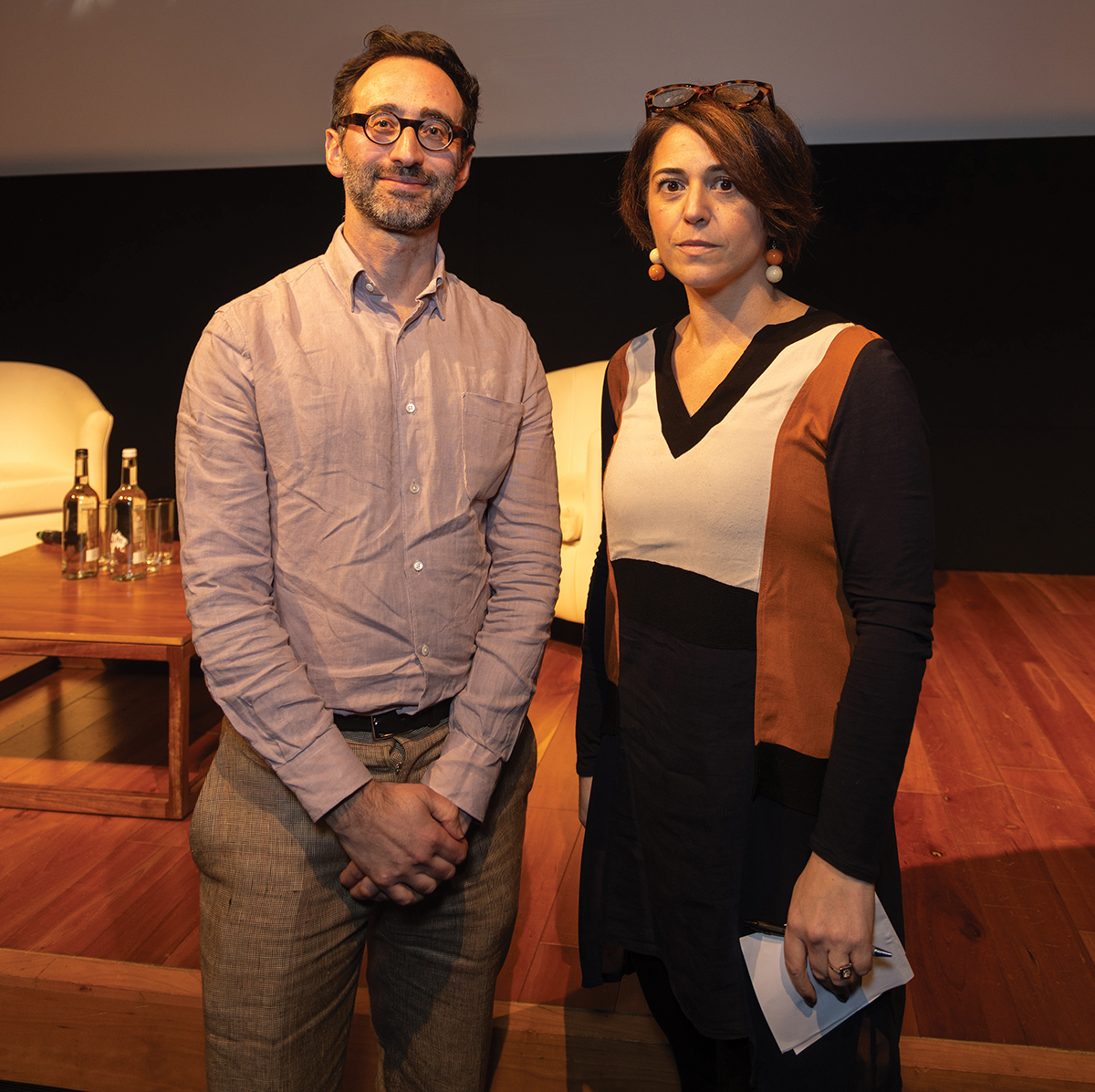
Bearing witness to the Holocaust
The RTS hosted a screening of The Last Musician of Auschwitz at the British Museum last month, shortly before its transmission on BBC Two on Holocaust Memorial Day. The Head of BBC Arts and Classical Music TV, Suzy Klein, called it a remarkable achievement: ‘It blends interviews, archive, contemporary footage, dramatic reconstruction and musical performance in a way that I have simply never seen done before.
‘It’s a film where the events of 80 years ago still resonate and speak to our world today. And it’s a film which, sadly, is all too necessary.’
Klein noted that a University College London study had revealed that ‘nearly one in 10 people believed that the Holocaust was a complete myth’ and that ‘over half did not know that 6 million Jews and many others had been killed… [believing] the figure to be significantly smaller’. She added: ‘Of course, that landscape of toxic antisemitism has only grown worldwide since [Hamas’s attack on Israel on] 7 October 2023.’
The Last Musician of Auschwitz, continued Klein, manages to capture ‘on-camera, an interview with the last remaining survivor of the women’s orchestra at Auschwitz.
‘Anita Lasker-Wallfisch occupies a unique position and her interview at the centre of this film stands as a piece of irrefutable, first-person testimony. Anita is living proof of what happened at Auschwitz.’
The 90-minute documentary also features the stories of other musicians at Auschwitz. Klein explained: ‘We felt that this film is about bearing undeniable witness to what happened, and so we wanted the memoirs and records of [these musicians] who were there to be sitting alongside Anita’s first-person testimony… telling in their own words the story of what happened to them.’
In conversation with the director, Toby Trackman, Klein discussed one memorable scene, the performance of Adam Kopyciński’s Kołysanka (Lullaby), which he composed at Auschwitz. The director filmed it in the grounds of the camp commandant, Rudolf Höss, the ‘zone of interest’ (a term used by the Nazis to describe the land around Auschwitz), which was the subject of Jonathan Glazer’s Oscar-winning film based on Martin Amis’s novel.
‘The symbolic power of doing that was the real driver – the sense that we were reclaiming that space,’ said Trackman. ‘Putting the grand piano in the grounds of Höss’s house… it was one of the most powerful experiences.’
The screening was held at the British Museum on 15 January and produced by the BBC, Two Rivers Media and Terry Marsh for the RTS.

